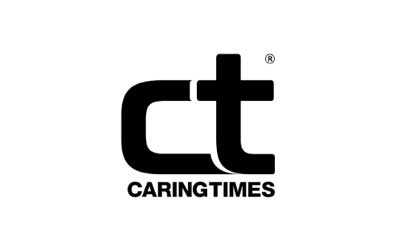Traditional paper-based processes can no longer keep pace with the demands of modern domiciliary care and the evolving standards set by the CQC (Care Quality Commission). This has driven a significant digital transformation in home care, with some 80% of agencies now adopting advanced technology to streamline operations, improve record-keeping and support better outcomes for clients and carers alike.
These tools help agencies ensure compliance, reduce errors and deliver responsive, accountable care with real time updates for managers and families.
CareLineLive: The all-in-one solution for home care agencies
Choosing the right home care agency management software is about finding a reliable, all-in-one solution that helps your agency deliver better care, stay compliant and grow with confidence. At CareLineLive, the software is built around the real needs of domiciliary care providers – not just for ticking off CQC requirements, but for genuinely improving day-to-day operations. Whether you’re upgrading from an outdated system or investing in care scheduling software for the first time, CareLineLive offers the best mix of functionality, transparent pricing, proven reliability and trusted customer support.
| Feature | Included? | Description |
|---|---|---|
| Scheduling and Rostering | ✓ | Real-time updates, drag-and-drop rostering, staff matching |
| Electronic Visit Verification | ✓ | GPS/QR check-ins with timestamped logs for every visit |
| Digital Care Planning | ✓ | Customisable care plans, alerts, risk assessments |
| Compliance and Reporting | ✓ | Regulatory evidence, audit trails, live dashboards |
| Mobile App for Carers | ✓ | Offline access, task lists, real-time updates |
| Family Portal | ✓ | Real-time care logs and other information |
| Invoicing and Payroll | ✓ | Automated workflows and accounting integrations |
Scheduling and rostering: real-time updates, automatic scheduling, caregiver matching
CareLineLive streamlines rostering processes, providing real-time access to client and carer information while enhancing safeguarding through visit verification. The platform offers a clear and easy-to-use roster screen with drag-and-drop functionality for quick ad-hoc changes and updates. Carers can be matched to clients based on compatibility, location, training and qualifications, ensuring continuity and quality of care. Managers are instantly notified of changes and clients and their families are kept informed about visits. This all leads to more efficient scheduling, reduced errors and increased productivity for carers.
Electronic visit verification (EVV): GPS verification, timestamp logs, compliance-friendly
Electronic Visit Verification (EVV) is seamlessly integrated into CareLineLive, providing accurate GPS-based verification and timestamp logs for every visit. Carers can check in and out of visits using GPS enabled QR code scanning, ensuring accurate records of their location and working hours. This not only supports compliance with CQC and other regulatory requirements but also enhances safeguarding for both clients and carers. The EVV system makes it easier to demonstrate accountability, reduce fraud and provide transparent records for audits and inspections.
Care planning: customisable digital care plans, alerts, risk assessments
CareLineLive enables agencies to create and manage customisable digital care plans tailored to each client’s specific needs. The system supports the creation of alerts and reminders for critical tasks, as well as integrated risk assessments to proactively manage client safety. All care plans, assessments and preferences are stored securely and are accessible to all relevant staff, ensuring person-centred, up-to-date care that adapts to changing client needs.
Compliance and reporting: audit trails, live dashboards
Compliance is at the core of CareLineLive’s design.
| Security Feature | Included | Description |
|---|---|---|
| ISO 27001 Certification | ✓ | International standard for data security |
| NHS DSP Toolkit Compliance | ✓ | NHS data protection compliance |
| Penetration Testing | ✓ | Defends against hacking attempts |
| Data Encryption (Rest and Transit) | ✓ | Secures sensitive client and staff data |
| GDPR-Compliant | ✓ | Meets UK and EU data protection rules |
The platform is making it easier for agencies to evidence compliance during inspections with the statutory regulatory organisations such as CQC in England and the Care Inspectorate in Scotland. Comprehensive audit trails track every action taken within the system, while live dashboards provide real-time oversight of key metrics. This supports proactive management and simplifies reporting for regulatory and quality assurance purposes. The system also meets industry-leading security standards, including ISO 27001 and NHS DSP Toolkit compliance.
Mobile app for caregivers: cross-platform support, offline mode, task lists
The CareLineLive mobile app is available across platforms, giving caregivers access to their schedules, care plans and task lists from anywhere. The app supports offline mode, allowing caregivers to continue working even without an internet connection – data syncs automatically when connectivity is restored. Task lists help caregivers stay organised and deliver care efficiently. Carers have highlighted the app’s ease of use, real-time updates and helpful GPS features for finding client locations and signing in and out of visits.
Family portal: Transparency for families, real-time logs, secure messaging
CareLineLive includes a dedicated family portal, enhancing transparency and sharing of information. Families can access real-time care logs, see updates on their loved one’s care This fosters trust and keeps families informed and engaged in the care process. Emergency services can also be granted one-off access to relevant care information if needed.
Invoicing and payroll: automated workflows, compliance with UK payroll, accounting integrations
The platform streamlines invoicing and payroll with automated workflows that reduce administrative burden and minimise errors. CareLineLive integrates with leading accounting systems such as Sage and Xero. Accurate attendance records from EVV feed directly into payroll and invoicing, ensuring timely and accurate payments and simplifying financial management for home care agencies
Why CareLineLive?
At CareLineLive, we know that managing home care isn’t easy.
- That’s why we’ve designed software that makes it easier – for managers, carers and clients.
- Our goal is to help your agency deliver better care, save time and stay compliant, all while providing outstanding value.
- We’re proud to be the only care management software provider with a 4.8/5 Trustpilot rating. Our customers choose us – and stay with us – because we deliver.
Want to see how CareLineLive can simplify and strengthen your agency’s operations?
Book a demo today and experience the difference for yourself
12 things to consider when choosing the best home care software
Choosing the combination of technologies your home care business needs to run efficiently is a hugely important decision. You’ve probably already decided on Microsoft vs Google for work like word processing and spreadsheets but what about your home care management software?
There is a lot to consider before deciding what to invest in and making the wrong decision could be a costly mistake to undo going forwards.
But how do you go about making an informed and educated decision on what software to buy when there are so many software providers in the market?
You’ll find there are perhaps as many as 40 software providers offering home care management software in the UK. Some are low cost, low frills systems that tend to focus on one or two key features – with these you’ll likely need to combine multiple software applications to deliver all you need often increasing overall cost. Whilst others appear to promise an all-in-one, all singing, all dancing solution (not that any of them actually sing or dance….)
If you’ve recently had a “requires improvement” CQC inspection you’ll know that a specialist homecare all-in-one digital solution will help you meet those improvement requirements.
Whether you’re looking to invest in a new software system or you’re looking to replace a current solution, here are 12 things to consider before buying. Use these tips to help guide the buying process so your team feels confident when making the final decision. We’ve put the tips together following feedback from our customers on what they were looking for (and also based on their experiences of previous purchase decisions).
1. How much does home care software cost and what is the value?
The price you pay for software does not always reflect its value. Consider the savings it can bring through automation of processes such as invoicing and payroll, and the benefits of having a single system to reduce data entry duplication and simplify care visit records.
Consider the potential costs of not having the right system such as a cyber attack or a lack of compliance records.
Also, be mindful of software that may not be able to grow with your business in the future. Consider your business needs in five or 10 years, and see how the software costs will increase with an expanded number of carers and service users. A low cost purchase now may cost you more in the long run if you need to switch software later on.
Top Tip: You’ll likely talk to several software suppliers and be inundated with options for features. Start with making a list of your “must have” features within a price point. Then make a “nice to have” feature list and a “don’t need” list. This will help you get a better understanding of the value a software brings to your business. We find that sometimes people get very fixated on a single feature and use that as the basis of the purchase decision rather than taking a more holistic view. You may need to compromise on one point in order to get a system that overall is better suited to your needs.
2. How is home care management software pricing calculated?
Some software providers charge on a per-carer basis, others on a per-client basis. Some also charge a fee for an overall licence on top of per-user costs and some charge in addition for licenses for office staff to have access. Some charge by charging for different sets of features or different applications joined together.
Does the price cover everything you need or are there additional charges for extra features? There is a lack of pricing transparency in the market so do ensure you fully understand all the costs you are going to face.
Check too if there is a minimum fee per month – this is likely to only be an issue for relatively small home care agencies.
Do as much due diligence as you can to ensure that the pricing you are signing up to is fair and transparent.
3. Will costs change in the future?
All software on subscription is going to face cost increases over time. Most will have annual price rises especially as inflation rises, but beware of systems that charge you extra when new features are rolled out.
4. Is the software company prepared to fix bugs?
All software has bugs. When choosing software it’s important to consider the vendor’s approach to bug resolution. Make sure that the company will address the problems that are unique to your company’s use of the software, and not just the big problems that other users run into.
Top Tip: Ask for references from clients of the preferred provider. Ask them about how they find bug fixing, customer service and other aspects of the software.
5. How often do they push updates?
To ensure that you are working with a top-quality software company, it is crucial to inquire about their update schedule and communication protocol. Ask the vendor to provide information on how frequently they release software updates and how they notify customers of these changes. Additionally, be mindful of any limitations or disruptions to service that may occur as a result of product updates, as these can have a significant impact on your business operations.
You can also ask what the process is for functionality requests by customers.
Top Tip: Ask software vendors to provide a product status page to review past communications on any product issues and updates.
6. What about downtime?
You never want to get into a “computer says no” situation so do find out how reliable the software is over time. CareLineLive runs using cloud servers with excellent back-up systems. Others may be reliant on locally-based servers or even software run from the local memory of your PC.
Top Tip: Ask software vendors to provide a report on downtime for the last 12 months.
7. What software do you need to integrate?
Some providers need to integrate existing software such as Sage or Xero. Increasingly integrations with Microsoft Dynamics and iTrent are also required. Some local authorities use systems such as CM2000 and ControOCC. If you need to integrate with these or other systems do check that your new provider can manage that efficiently and ideally without charging you an additional fee.
Top Tip: Integration with specialist software such as Sage or Xero makes a lot of sense but warning bells should sound if you find you are having to use additional software to deliver basic domiciliary care services such as rostering, care planning or eMAR. This is likely to result in duplicate data entry and future bug issues as software packages iterate.
8. What about your legacy data?
If you have an existing system what are you going to do about either importing that data into your new software or are you going to start from scratch? Does your new software provider have an import function and how does that work?
9. What onboarding and ongoing support will the software provider offer?
You want to choose software that your employees will be able to adopt quickly and easily. But even simple systems will need some introduction. What is the usual onboarding process offered by your prospective provider? What are the options for new staff going forwards?
And what ongoing support is offered? Can you get phone support or is everything done via email or a ticketing system. Is the support line actually answered in a reasonable time frame and what are the usual support hours? How easy is it going to be for you to get hold of a human being to help you when you run into difficulties?
If the software uses a ticketing system, what is the anticipated response time for a request? It is important that your software company’s support department is available when you need them.
Top Tip: Ask your vendor for performance metrics on support calls and tickets. And check with some of their existing clients for their opinion too.
10. Will you need additional development?
Some home care agencies, particularly larger operations, have very precise needs of their software. This can require custom development on top of the usual product offering. Can this be done by your chosen vendor? How much will it cost and in what time frame?
11. Check the T&Cs – how easy will it be for you to extract yourself from a contract if it doesn’t work out?
We’ve heard from some home care providers that they have found themselves in onerous rolling contracts once signed up to a vendor and have found it very difficult to give notice that is reasonable. Rolling contracts can tie you into another year if you haven’t given notice by a particular date. And some companies make it very hard to even give notice.
How understandable are the Terms and Conditions? Do you even understand what they are saying? How biased are they in favour of the software provider? Do they feel fair to you? If it all goes wrong how easy will it be for you to extricate yourself from the contract?
12. What kind of security does the software provide?
Data management, including collection, security, storage, and sharing, is a critical aspect of any software. It is important to thoroughly review the security policies of any software you are considering purchasing.
Some vendors will be compliant with standards such as ISO 9001 and 27001. You will likely also want your provider to be NHS Data Security Protection Toolkit Compliant and have passed deep cyber security penetration testing carried out by independent third party cyber security firms.
Top Tip: You may not have the budget to commission cyber security testing yourself but you can ask what other clients have recently undertaken such checks and how the software performed.
When evaluating software, the most important thing to keep in mind is your company’s particular needs. Software should help make your and your carers’ jobs easier and more efficient and not be difficult for your staff to adopt and utilise.
By keeping these twelve tips in mind, you’ll be able to fully evaluate all the software options you’re interested in and make the right choice for your business.
You may also enjoy our checklist of things to look for when buying home care management software.
If you’d like to talk to us about how CareLineLive shapes up against these 12 criteria you can book a demo today.




